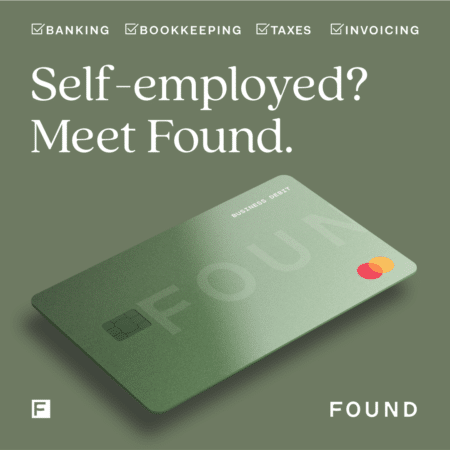If being your own boss sounds appealing to you, then choosing freelancing as your career might be the best solution. Did you know there are over 1.57 billion freelancers all around the world? No wonder, freelancing has become more popular than ever.
Freelancing, if done right, can become a rewarding career that offers flexibility and the perfect work-life balance. There is no dearth of freelancing ideas in today’s world. Having sustainable growth and longevity is crucial for freelancing. It provides freelancers with financial stability through a consistent and reliable income stream. Due to the consistent flow of new projects and challenges, freelancers find a sense of accomplishment and satisfaction in their work.
In this post, we will share a detailed guide on how to get started with freelancing and convert it into a sustainable and long-lasting career path.
Your Freelance Career Starts Today!
Here is the list of stages most freelancers go through. Identify where you stand and plan further actions to build a successful freelance career.

Stage 1 – Getting Started with Freelancing
If you wish to work independently while having complete freedom to choose your work schedule, freelancing is the best option for you. It provides you with an opportunity to be your own boss. Whether you are freelancing or consulting (learn more about freelancing vs consulting), you can work from any place in the world remotely as you are not tied to a dedicated location like an office building.
The initial phase of starting your freelance career is crucial as it sets the foundation for success and growth in freelancing. Here are a few tips to help you get started with your freelance career.
1. Identify Your Passion and Skills
Freelancing begins with identifying your passion and skills. Start by conducting a self-assessment of your previous work experiences to identify your passion and core skills. Determine what tasks and projects you enjoy working on the most and where your expertise lies. This will help you choose a freelancing niche that aligns with your experience and interests.
Further, when you choose the projects you love working on, you give yourself more control of the work you do and make yourself happier. Whether it is content writing, graphic design, social media management, or any other field, making a freelancing career in the domain you are passionate about will make your work more fulfilling and set you up for excellence and success in no time.
2. Build Your Portfolio
Assemble your best work samples to demonstrate your skills and expertise in the chosen domain. Remember having an incredible portfolio serves as a showcase of your work. It helps your potential clients to review and assess your capabilities.
For example, if you are a graphic designer, your portfolio could include digital illustrations, animation, landing page designs, or any other form of design you have done in the past. You can create a webpage with a list of links to your designs hosted on popular platforms, such as Behance, WordPress, Dribble, or Craft CMS Hosting. Similarly, if you work in a non-visual role like content writing or sales, you ought to think creatively to present your portfolio.
If you are a fresher with no on-site experience, you can consider working on personal projects to build your portfolio. Remember the quality of your portfolio will instill a sense of trust and confidence in your potential clients thereby increasing your chances of getting selected for their projects.

3. Develop Your Online Presence
Having a strong online presence serves as the most powerful tool for attracting clients and building a solid personal brand. It helps you stand out amidst the competition to make an impact and land higher-paying clients.
Start by creating a professional website that showcases your portfolio, services, contact information, blog, and about page. Optimize this website for search engines using an intelligent SEO tool to boost its discoverability. Share engaging content related to your offerings on your website blog to attract your desired target audience and convert them into warm leads.
Be active on various social media platforms and professional networks, such as LinkedIn, Twitter, Facebook, Instagram, and more. Share exciting content on these platforms to reach out to a wider audience. Participate in industry-related discussions online to establish credibility as an expert freelance professional in your niche.
4. Set Your Rates
If you wish to sustain your freelancing career, it is essential to determine the best rates. Factors such as your experience, expertise, market demand, and the rates charged by your competitors play a major role in fixing your prices. Similarly, the complexity of the projects also influences the pricing structure. Conduct thorough research to determine the rate structure for your freelancing services. This guide by Upwork will help you set your freelance rates without any difficulties.
As you gain experience in freelancing and build a strong portfolio, you can gradually revise your rates according to the changing freelancing business landscape.
5. Find Your Initial Clients
Tap into your existing network and reach out to family, friends, and colleagues who might need your services. You can also ask them for referrals for securing your initial clients. Join online freelance job boards and other platforms to find relevant projects. You might need to be a bit flexible with your rates initially to build your reputation as a freelancer and generate positive client reviews.
Stage 2 – Establish Your Freelance Business
The next step towards ensuring the long-term success of your freelance business is to set the foundation for a successful venture. Invest in the below-mentioned strategies to establish a solid freelance business that attracts clients, delivers value, and builds long-term relationships with them.

1. Create a Business Plan
Create a comprehensive business plan that outlines your freelance business goals, marketing strategies, operational activities, financial plan, and more. Once you have set your business goals, create a roadmap containing actionable steps to achieve those goals. Review and update your business plan to adapt to changing freelance industry conditions.
2. Build Your Professional Network
Networking with other professionals from your industry can help you discover new projects, identify collaboration opportunities, and generate referrals. Connect with expert industry professionals on various social media platforms, such as LinkedIn and Twitter, and online forums. You can also attend industry-related conferences, seminars, and workshops to connect with like-minded individuals and engage in discussions to expand your reach and credibility.
Build your reputation as a knowledgeable freelancer by sharing valuable information, offering insights, and building an enthusiastic community. This will not only help you discover new clients or long-term projects but also assist your freelance career development by providing access to numerous resources, career progression advice, and opportunity to enhance your skills.
3. Enhance Your Skills
To stay competitive in the freelance market, skill development and continuous learning are a must. Invest in your professional development by signing up for online courses, attending webinars, reading industry-related articles, and adopting new technologies like generative AI, cloud application security, machine learning, and more. Focus on specializations and becoming an expert in a certain niche rather than doing it all. This will help you build a strong standing as an expert in your field and demonstrate your commitment to excellence and innovation.
Remember you can learn a lot from your previous projects. Review your past projects to identify the mistakes and analyze them. You can also gather a second opinion or an outsider’s perspective to identify possible improvements. This will help you complete your upcoming work in a more polished manner.
Lastly, no matter what your freelance business is about, your communication skills are important to acquire new projects and grow your business. You must be able to sell your services to your clients while convincing them why you would be the best person to take on their work. Hence, it is ideal to invest in improving your communication skills.
4. Refine Your Business Processes
Update your workflows and business processes to manage your workload effectively and deliver your client projects on time. Utilize various business tools, such as productivity tools, project management software, MRP software, bulk email service, time-tracking apps, and more to streamline your workflows.
Invest in contract management tools to clearly define project scope, deadlines, deliverables, and other information and avoid creating any misunderstandings with the clients. It is wise to invest in creating templates for business proposals, client contracts, invoices, and more to save time on administrative tasks.

Stage 3 – Scaling Up
As a freelancing business is vulnerable to market fluctuations, it is essential to expand your business and drive it toward increased income opportunities and long-term success. Here are a few tips to scale your freelance business to newer heights.
1. Expand Your Client Base
Diversify your client base to reduce dependency on specific clients. Invest time and effort into marketing your freelance services to attract new clients and open up new growth opportunities. Utilize social media marketing, content marketing, email marketing, and more to consistently generate leads and convert them into long-term clients. Do not hesitate to ask your existing clients to recommend you to other connections in their network.
Showcase your latest projects to demonstrate your experience to your potential customers. Gather testimonials from your clients and publish them on your website. Cultivate an atmosphere of exceptional customer service and support to build your reputation as a trusted freelancer and unlock new growth opportunities.
2. Increase Your Rates
As your skills and experience grow, it is essential to adjust your rates accordingly. Increasing your rates demonstrates confidence in the value you provide to clients. Communicate the changes in pricing structure to your clients in advance. While some clients may seek affordable options, clients who value premium services will certainly be willing to pay for them. You may also communicate the reasons behind the rate adjustments, such as improved expertise, enhanced quality of service, and more to your clients.
3. Outsource Tasks If Required
As your business grows, you may find it challenging to manage all tasks on your own. Consider outsourcing some of our tasks to reduce your workload and free up your time for other crucial activities that directly contribute to business growth and revenue generation, such as client outreach, lead generation, client conversion, and more.
Identify the tasks that do not directly contribute to your services. For example, administrative tasks, bookkeeping, social media management, and more can be outsourced to a virtual assistant. Similarly, the core tasks can be outsourced to expert professionals by clearly communicating the task requirements, deadlines, and other relevant information.
Choose those professionals who have a history of delivering quality work on time. Start by delegating a small task or a pilot assignment to gauge their skills before outsourcing the project. This strategic approach will help you take on more clients without sacrificing the quality of your work.
Stage 4 – Build Your Brand
Building a brand is of paramount importance for freelancers because a strong brand helps them differentiate themselves from others offering similar services. It provides them with an opportunity to showcase their unique skills and expertise thereby making a lasting impression on their potential clients. Let us now understand the brand building process in detail.
1. Define Your USP
Identify what sets you apart from other freelancers in your field. It can be your background history, your services, your pricing structure, your clientele, customer support, or anything that offers distinct value to your clients. Your USP will make our freelance business stand out among your competitors and attract the clients you wish to work with.
Determine your key strengths, skills, and expertise in a specific niche. This will form the foundation of your brand identity. Use this USP in your website copy, portfolio, social media captions, and so on to attract your ideal client. Emphasize the benefits and advantages that make your services unique, making it clear why clients should choose you over other freelancers. This will make your services more appealing to your ideal clients.
2. Develop a Consistent Brand Image
Create a cohesive brand image across all your platforms and materials. Your brand should reflect your USP and resonate with your target audience. Design a professional logo, choose an attractive color scheme, select comprehensive typography, and include relevant graphics or illustrations across different platforms to make it appear more professional. Ensure that the brand messaging is consistent across your website, social media, brochures, presentation decks, portfolio, emails, and other marketing materials.
3. Share Expert/Thought Leadership Content
Demonstrate your expertise and establish yourself as a thought leader in your industry by sharing valuable content. Create blog posts, articles, or videos that offer insights, tips, and solutions related to your niche. This content not only showcases your knowledge but also provides value to your audience, attracting potential clients who appreciate your expertise. Share your content on your website and social media channels to expand your reach and engage with your target audience.
Stage 5 – Expand Your Business
The last stage is the expansion phase where you expand your freelance business and take it to the next level. The freelance business expansion introduces your venture to increased income opportunities allowing you to take up additional projects and clients. This reduces the risks of income fluctuations due to the changing client requirements or industry.
Here are a few ways to expand your freelance business.
1. Start an Agency
Running an agency can significantly expand your freelancing business. You can take on larger and more complex projects and serve a broader range of clients by becoming an entrepreneur (learn more about freelancer vs entrepreneur). This expansion allows you to hire a team of skilled professionals to handle various tasks, such as design, development, writing, or marketing. Taking on more clients simultaneously results in increased revenue and business growth.
2. Create More Income Streams
Explore new income streams that complement your core services. For example, if you are a content writer, explore opportunities in copywriting, content marketing, or writing eBooks. Similarly, if you’re a graphic designer, consider offering additional services like creating website templates, stock graphics, or digital assets for sale. By diversifying your income streams, you reduce reliance on a single source of revenue and bring in more stability in your earnings.
3. Launch Your Online Courses/Products
Creating online courses, e-books, or digital products is another powerful way to expand your business. It helps you establish yourself as a thought leader in your field.
Create high-quality educational content that addresses the pain points of your target audience. Your courses can cover topics related to your freelance services or offer additional skills that align with your expertise. This will not only generate additional income but also attract potential clients who are interested in availing your services after understanding the value you provide in your courses or educational products.
4. Pursue More Opportunities
Pursue more opportunities in your industry proactively. Collaborate with other freelancers or agencies to take on larger projects. Attend networking events, conferences, and trade shows to connect with potential clients and industry professionals. Be active on online platforms, participate in relevant forums, and join industry-specific groups to expand your network and build your reputation. The idea is to put yourself out there to seek more opportunities and projects that contribute to the growth of your freelance business.
A Few Last Words
A long-lasting freelance career is a result of five distinct stages of growth, each building upon the previous one to build a strong foundation for success.
- Start by identifying your skills and building your portfolio to find initial clients.
- Scale up your business operations by expanding your client base and pursuing more opportunities. You may outsource your work to other professionals to accommodate your clients and deliver quality work on time.
- Build a strong brand identity by defining your USPs and developing a consistent brand image.
- Explore new avenues to generate revenue by starting an agency, launching online courses, taking on more complex clients, diversifying your offerings, and creating additional income streams.
Building a successful freelance career requires self-confidence, hard work, and perseverance. By staying true to your passion and honing your skills, you can create a thriving freelance career for yourself.
Keep the conversation going...
Over 10,000 of us are having daily conversations over in our free Facebook group and we'd love to see you there. Join us!





